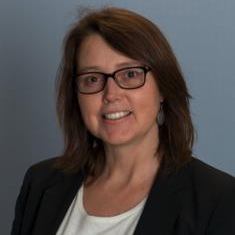STEM Practices in Informal Education Spaces
A special issue of Education Sciences (ISSN 2227-7102). This special issue belongs to the section "STEM Education".
Deadline for manuscript submissions: closed (30 November 2022) | Viewed by 12611
Special Issue Editors
Interests: chemistry education; informal science education (out-of-school contexts, outreach); teacher education; augmented and virtual reality; sustainability
Special Issue Information
Dear Colleagues,
The STEM-based education of the 21st century strives to find a balance between student skills and competency development in the classroom, as well as engaging students with the breadth of informal and out-of-school contexts available today. However, rising to the challenge of complex and ‘wicked’ problems, both in local and global contexts, requires proactive steps across all sectors of education, including in informal education.
Teachers are often specialised in particular subjects or disciplines, although by exploring informal STEM contexts, STEM can refer to individual STEM disciplines or integrated approaches to STEM.
For this Special Issue of the Education Sciences journal, we invite submissions aiming to present recent advances in research, theory, policy and practice relating to the relevance of informal STEM education. We welcome interdisciplinary or subject-specific approaches to science, technology, engineering or mathematics and encourage submissions incorporating action research, evaluations, case studies, mixed methods, as well as qualitative and quantitative methods of analysis.
Key questions that could be addressed include, but are not limited to:
- What education values and contributions occur outside of the formal education setting?
- How can teachers engage with STEM practice, learning and teaching in ways that occur outside of their formal classrooms?
- How can teaching and learning be incorporated into nonschool settings, such as science, maths and technology learning centres and museums, or into outreach and extracurricular programs based inside or outside the university or industrial sector settings?
- How can policy influence education in informal STEM settings? What is needed to capture the regulatory requirements around how teachers approach teaching science, maths and technology?
- What practices can encourage the engagement of teachers with citizen science initiatives, socioscientific issues and activism, such as in energy technology, climate change and sustainable development?
Dr. Seamus Delaney
Dr. Linda Hobbs
Guest Editors
Manuscript Submission Information
Manuscripts should be submitted online at www.mdpi.com by registering and logging in to this website. Once you are registered, click here to go to the submission form. Manuscripts can be submitted until the deadline. All submissions that pass pre-check are peer-reviewed. Accepted papers will be published continuously in the journal (as soon as accepted) and will be listed together on the special issue website. Research articles, review articles as well as short communications are invited. For planned papers, a title and short abstract (about 250 words) can be sent to the Editorial Office for assessment.
Submitted manuscripts should not have been published previously, nor be under consideration for publication elsewhere (except conference proceedings papers). All manuscripts are thoroughly refereed through a double-blind peer-review process. A guide for authors and other relevant information for submission of manuscripts is available on the Instructions for Authors page. Education Sciences is an international peer-reviewed open access monthly journal published by MDPI.
Please visit the Instructions for Authors page before submitting a manuscript. The Article Processing Charge (APC) for publication in this open access journal is 1800 CHF (Swiss Francs). Submitted papers should be well formatted and use good English. Authors may use MDPI's English editing service prior to publication or during author revisions.
Keywords
-
STEM education
- informal education
- out-of-school contexts
- outreach
- interdisciplinary
- extracurricular programs
- education policy
- socioscientific issues
Benefits of Publishing in a Special Issue
- Ease of navigation: Grouping papers by topic helps scholars navigate broad scope journals more efficiently.
- Greater discoverability: Special Issues support the reach and impact of scientific research. Articles in Special Issues are more discoverable and cited more frequently.
- Expansion of research network: Special Issues facilitate connections among authors, fostering scientific collaborations.
- External promotion: Articles in Special Issues are often promoted through the journal's social media, increasing their visibility.
- Reprint: MDPI Books provides the opportunity to republish successful Special Issues in book format, both online and in print.
Further information on MDPI's Special Issue policies can be found here.






